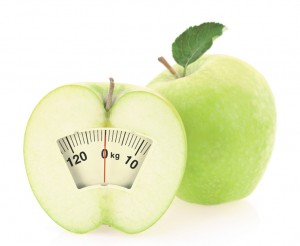By Jeffrey R Delaney, Nuviva Medical Weight Loss –
 With the risk of obesity, diabetes, hypertension and atherosclerosis growing larger every day, we have to ask ourselves what is causing this? A common additive present in processed foods like soft drinks, salad dressings, and store bought cakes, cookies, snacks, breakfast cereals and breads.
With the risk of obesity, diabetes, hypertension and atherosclerosis growing larger every day, we have to ask ourselves what is causing this? A common additive present in processed foods like soft drinks, salad dressings, and store bought cakes, cookies, snacks, breakfast cereals and breads.
What is this additive? High fructose corn syrup! High fructose corn syrup, which is made from corn, was developed in the 1970’s as a low-cost sweetener for foods. While regular table sugar (sucrose) is 50% fructose and 50% glucose, high fructose corn syrup can contain up to 80% fructose and 20% glucose.
So what is the difference between high fructose corn syrup and fructose? Nothing, they are basically the same. High fructose corn syrup is made of mostly fructose. Fructose is naturally occurring sweetener found in fruits and honey.
Eating too much fructose of any type is problematic because fructose is metabolized differently from glucose. Fructose is converted to fat in the liver and can be readily stored as body fat. That’s why fruits and processed foods should be portioned or restricted as much as possible during the Nuviva program and in your everyday life. Don’t get me wrong, fruit is generally healthy, containing vitamins, minerals and fiber. But the Nuviva program is based on achieving the best possible results. To that end, vegetables are a good source of these nutrients because most vegetables do not contain fructose.
Most people would assume that since fruit is a carbohydrate it would react just like other carbohydrates in the body. Unfortunately, that is not the case. Nearly all the calories from fruit are in the form of simple sugars, with the majority of these being fructose.
Fructose can do three things in the body. First, it can be converted to fat in the liver, it preferentially fills liver glycogen stores so that even good complex carbohydrates are more prone to spill over into fat; and it cannot be used by the muscles to recover glycogen. Muscles do not have the enzymatic machinery needed to convert fructose into glycogen, so fructose represents a dietary carbohydrate load targeted for the liver.
In the liver, two things could happen with fructose. The first being that fructose can be absorbed by the liver cells, converted to glucose and then stored as liver glycogen. The second being that fructose can be converted to fat through an enzyme that operates as a switch to decide if a sugar gets stored as glycogen or converted to fat. Fructose completely by passes this enzyme and is readily converted to fat by the liver.
So a large portion of the fructose simply gets converted into fat and released into the bloodstream. As a result you get a dose of fat and the damage doesn’t stop there. The rest of the fructose gets converted into liver glycogen. Once your liver glycogen stores are full the liver says, “We’ve got all the glycogen we can hold, so anymore carbohydrates entering in will get converted to fat.” Fructose preferentially replaces liver glycogen instead of muscle glycogen and shifts the liver into a fat-storing mode. We need some liver glycogen to keep blood sugar levels stable, but when liver glycogen stores are full, all carbohydrates coming in store into fat stores.
The third problem is that fructose cannot be used to replenish muscle glycogen. So on a high fructose diet, liver glycogen stores are filled and we start converting carbohydrates into fat without even filling muscle glycogen stores. Fructose is probably one of the worst carbohydrate sources for active individuals.
In summary, fructose does three major things in the body. A large portion of it is converted directly to fat by the liver, it preferentially fills liver glycogen stores so that even good carbohydrates are more prone to be stored as fat, and it cannot be used by muscle to recover glycogen. Calorie for calorie, the only nutrient that will make you fatter than fructose is fat itself!
Nuviva Medical Director – Brian Acrement, M.D.
A graduate of the University of South Alabama College of Medicine, Dr. Arcement performed his residency in Internal Medicine. He then completed a Fellowship in Cardiology at the University of Florida Health Science Center (Jacksonville) and a second Fellowship in Interventional Cardiology at Vanderbilt University Medical Center (Nashville). Dr. Arcement has three board certifications in Internal Medicine, Cardiology, and Interventional Cardiology.
A renowned cardiologist practicing for more than a decade, Dr. Arcement has seen the devastation poor lifestyle choices and the aging process can play on the human body. Many of
his patient’s underlying conditions were directly related to obesity and Dr. Arcement began to see weight management as a vital component in long-term health, as well as mental health.
With the help of the two other co-founders, he has designed a program that encompasses all aspects of weight management, including physician-supervised medications, supplements, nutrition coaching and patient education.
If youʼre not sure where to start, and you feel like you may need some additional weight loss counseling, call us today at 561-296-3144 for your free consultation.
1. Shafrir E. Fructose/Sucrose Metabolism, it’s physiological and pathological implications. Sugars and Sweeteners, Kretchmer N and Hollenbeck CB, Eds. CRC Press, 1991, pp. 63-98.
2. Paige DM, Clinical Nutrition. C.V. Mosby Company, St. Louis, 1988, pp. 703-704
Check Also
The Latest Technology With Hearing Aids
Many modern electronic devices these days come equipped with Bluetooth technology. This feature lets you …
 South Florida Health and Wellness Magazine Health and Wellness Articles
South Florida Health and Wellness Magazine Health and Wellness Articles




